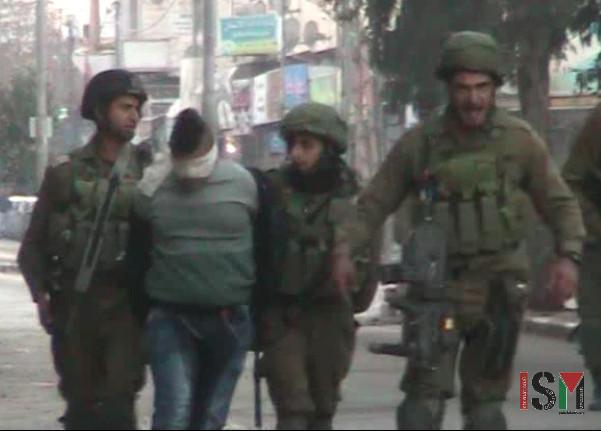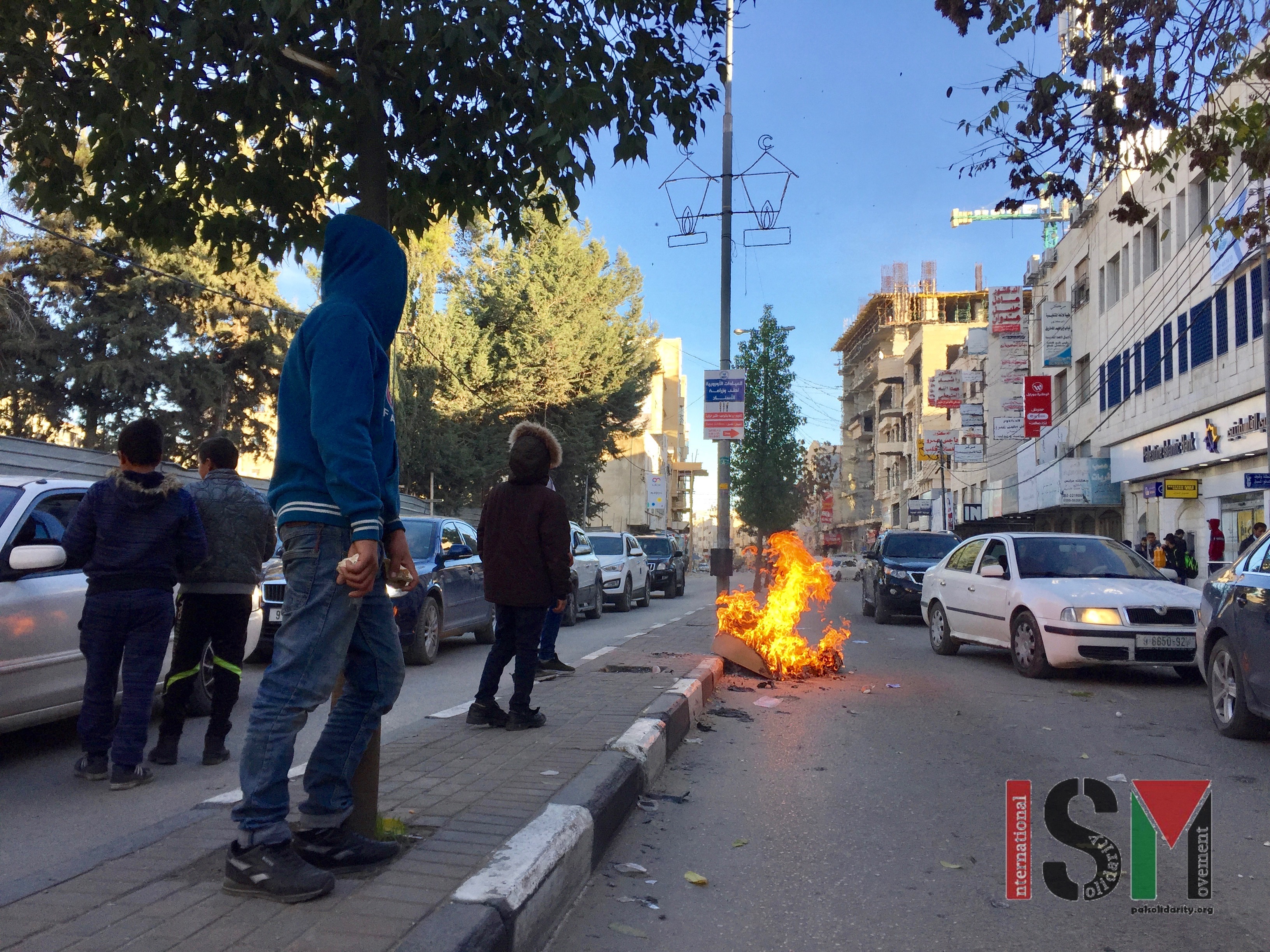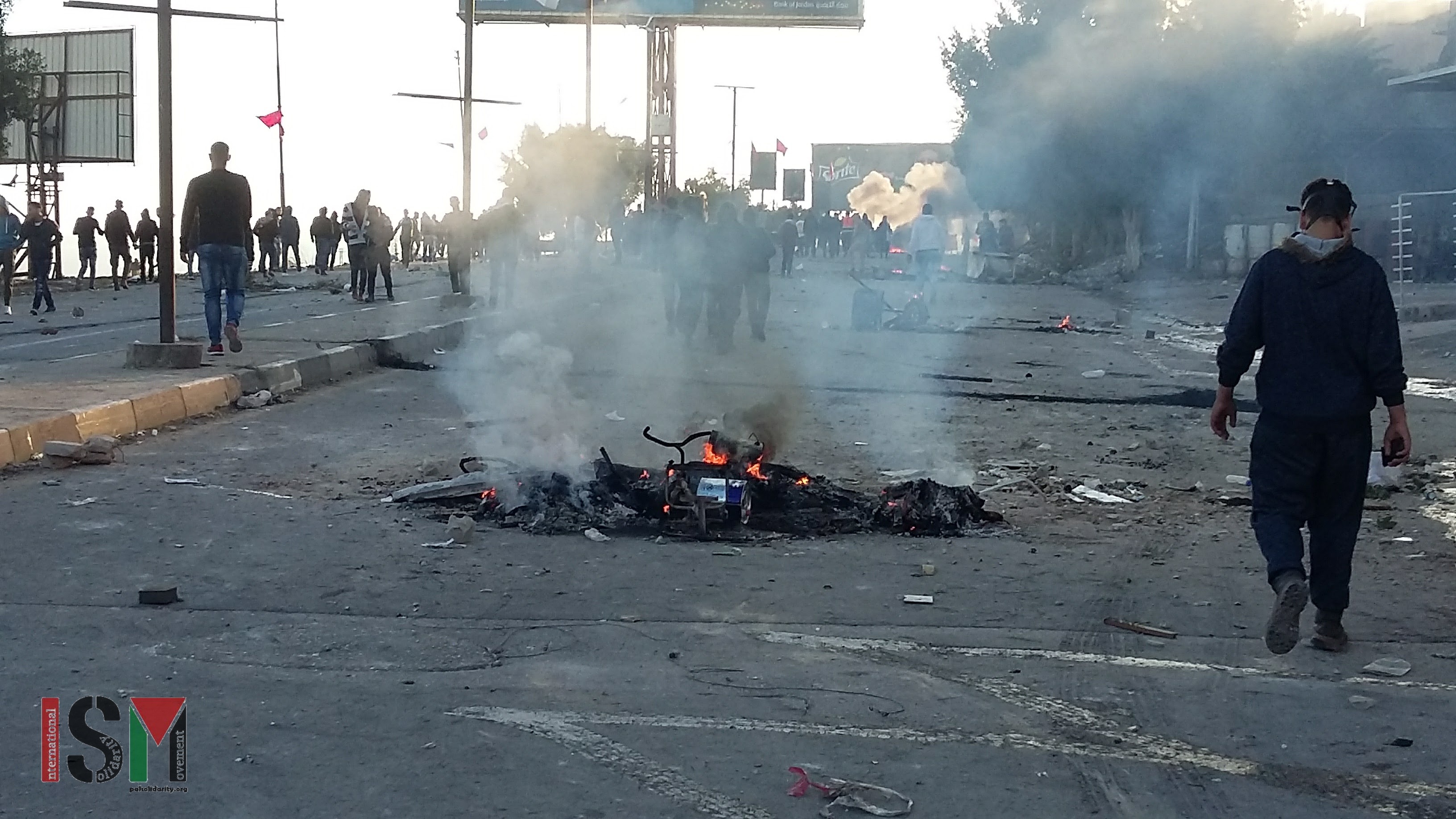-
Witness Report, Video: Israeli War Crimes Against Palestinian Youth in Hebron
December 2017 | International Solidarity Movement, al-Khalil team | al-Khalil, Occupied Palestine Witness accounts and video footage confirm that the Israeli army has been and is committing war crimes in dealing with the current wave of protests against the occupation, colonization, and ethnic cleansing in Palestine. On Friday, December 8, 2017 around 4:30 PM, ISM […]
-
Israeli Violence Against Civilians, Press Continues Through Weekend in Hebron
9 December 2017 | International Solidarity Movement, al-Khalil team | al-Khalil, Occupied Palestine Clashes continued throughout the weekend in Hebron, after Palestinian civil society groups called for “three days of rage” in response to Donald Trump’s widely unrecognized declaration that Jerusalem is the capital of Israel. Across the West Bank and Gaza, Palestinians organized general […]
-
Live ammunition met Palestinians protesting Trump
December 8th 2017 | International Solidarity Movement, Nablus team | Nablus, Occupied Palestine Palestinians protests against Trump’s decision about Jerusalem have kept on today all across the West Bank and the Gaza Strip. Today in the village Kafr Qaddum in the northern West Bank around 200 Palestinians and internationals gathered in a large Friday demonstration […]
Action Alert An Nabi Saleh Apartheid Wall Arrests BDS Bethlehem Bil'in Cast Lead Demonstration Denial of Entry Ethnic Cleansing Farmers Gaza Global Actions Hebron House Demolition International law Israeli Army Jerusalem Live Ammunition Nablus Ni'lin Prisoner Ramallah Rubber-coated steel bullets Settlement Settlers Settler violence Tear-Gas Canister Video



